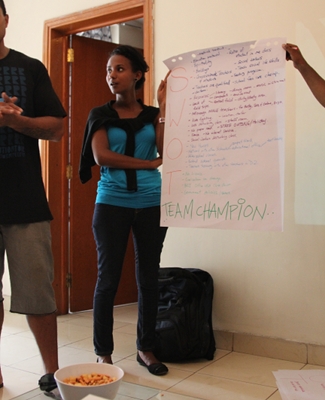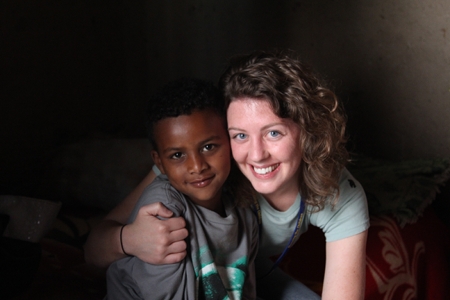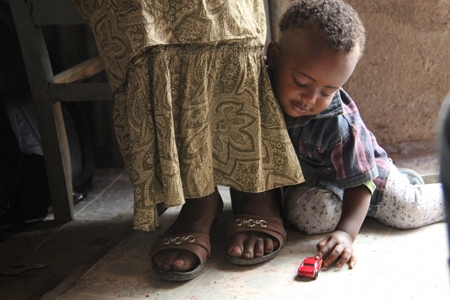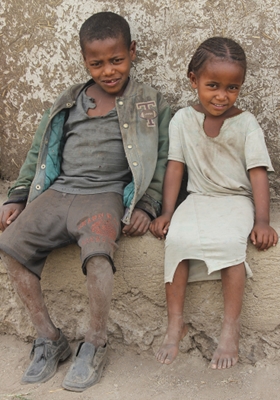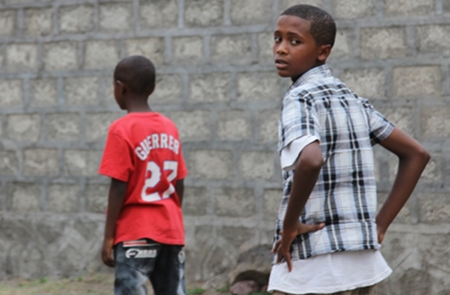It took four days to get a mobile Internet access card setup and working here. AT&T doesn’t get along with Ethiopia so I had to go local. I’m finally back online. Nothing happens quickly in developing countries. I’ve never been so grateful for dialup-speed Internet before.
I’ve had too many varied experiences to summarize in any way that does justice. Here are a few snippets.
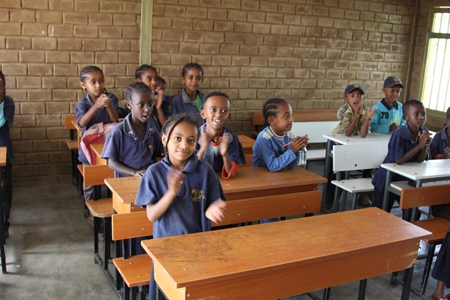
I taught English to Grade 2, Grade 5, and Grade 7 at BCI Academy on Monday. I’ve never taught a class before. The usual teachers did crowd control for me which was essential. It felt good to be willing to give something new and potentially chaotic a shot. I think the kids learned something. They don’t get to hear native English speakers often.
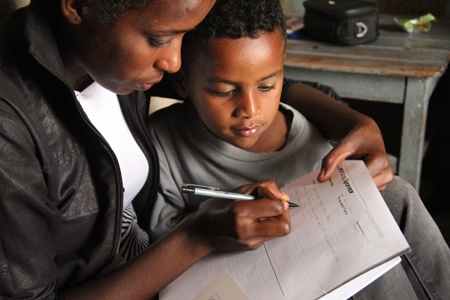
Here’s a sponsored child writing a letter to his sponsors in Canada. He took it so seriously, and resisted the urge to play with the toys we brought until he had finished it. Assisting him is Tigist, his social worker and a wonderful, hard-working, servant-hearted young woman.
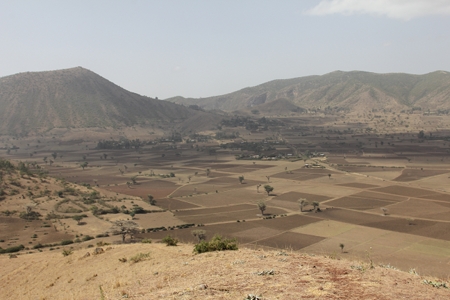

Here’s a view from the top of a nearby mountain, and one from outside another sponsored child’s house we visited. These look like I expect Africa to look.
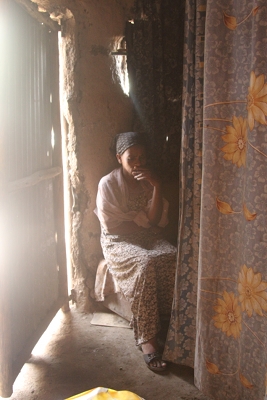
This woman is blind. Her two elementary school age children cook and shop for her. We visited her home today. We brought a pair of used tennis shoes for the boy, a great luxury in this place.
I came to understand today that truly helping people in poverty requires changing the choices they make. For example, the simple choice of using clean water instead of contaminated water seems obvious and easy, yet many people here don’t take advantage of free and easy options for sanitizing their drinking water. Perhaps once they got sick while trying clean water for a week, and concluded it doesn’t make any difference. Perhaps they figure lake water has always been good enough. Habits, traditions, and mindsets get in the way of even basic poverty alleviation efforts.
Another example, many young children die of diarrhea here. Three out of five children die before age 5, of that and other highly preventable causes. Simple oral rehydration therapy (a water / salt / sugar mix like diluted gatorade) is all that’s needed to prevent most of the deaths. Mixes are available for sale in the city, but still the children die because the parents don’t know about it, don’t think it will work, or who knows.
When you live in poverty, you don’t have margin for error. The safest choice appears to be to do things the way they were always done, and the way everyone else is doing. It’s hard, and I think understandably so, to convince someone in that mindset to try something new.
Changing supply availability is not the toughest part of this kind of work, changing minds is. I think that’s true of all kinds of work in all kinds of places.
